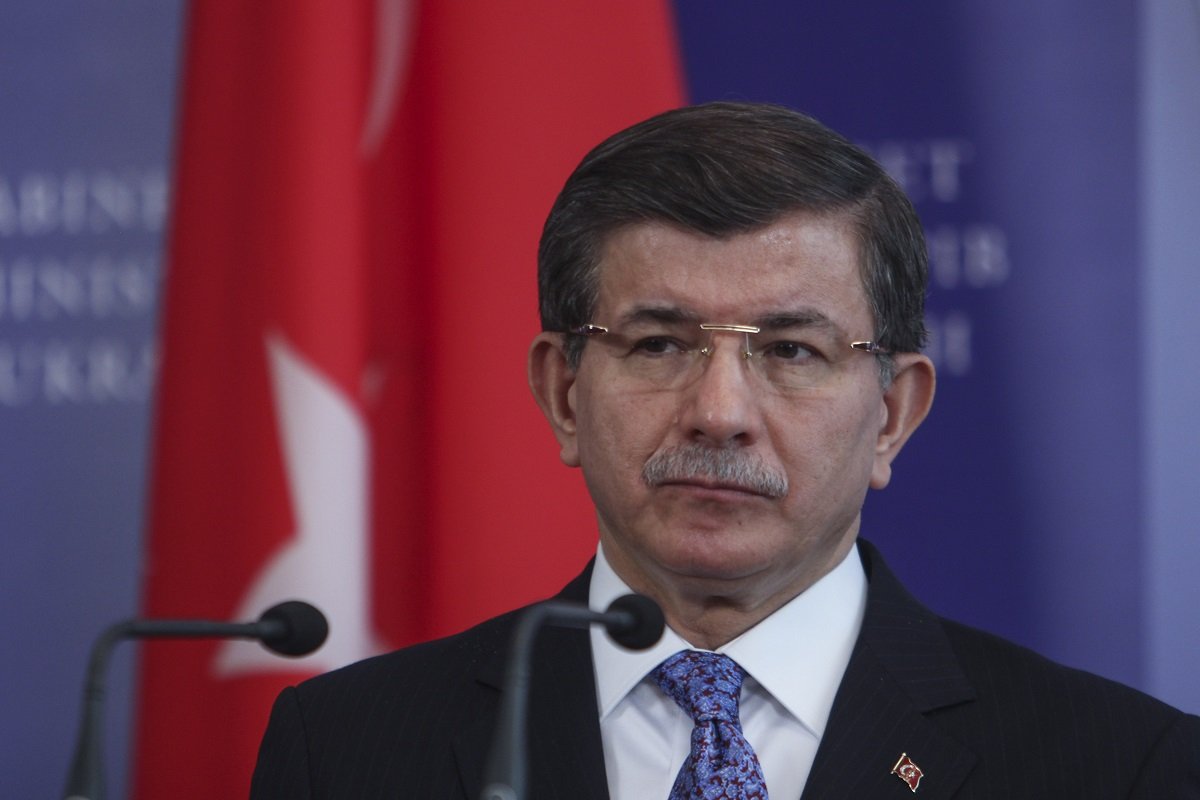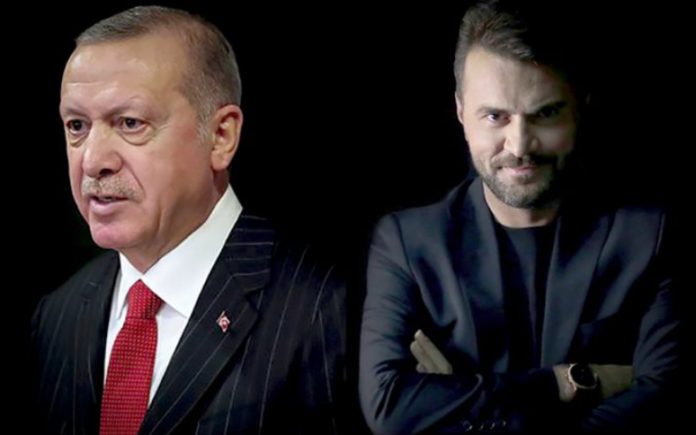The Turkish government secretly orchestrated a social media campaign to ensure the rearrest 21 journalists immediately after a court ordered their release on March 31, 2017, a pro-government Internet troll recently confessed, the Kronos34 news website reported.
A court ordered the release pending trial of 21 journalists, including Murat Aksoy, Atila Taş and Hanım Büşra Erdal, in their first hearing on March 31, 2017. They were indicted on fabricated terrorism-related charges in the aftermath of a coup attempt on July 15, 2016 based solely on their writings in newspapers and on websites. Yet, their release was not carried out by authorities after an intense social media campaign was initiated by pro-government Internet trolls. They had been kept waiting in the prison until they were arrested again by a higher court the same night.
A pro-government Internet troll, Abdurrahman Uzun, confessed in a recently released video to having started a Twitter campaign and explained how he and his team pressured the judges that night to ensure the rearrest of the journalists. Uzun said the release was thwarted thanks to the intervention of the justice minister and the Istanbul chief public prosecutor and that the journalists were rearrested by a hastily convened higher court. Uzun also spoke about the appreciation he and his colleagues received from Turkish President Recep Tayyip Erdoğan after the rearrests. “That’s it. You prepare the groundwork for us so we can make our political move,” Erdoğan said in praising him.
The case was one of those launched by President Erdoğan against journalists with a view to muzzling the free media and cracking down on dissidents after the abortive putsch.
Uzun, speaking on the YouTube channel of Hadi Özışık, the editor-in-chief of the pro-government İnternethaber news website, related what happened on the night of March 31, 2017. Recounting the events leading to the rearrest of the journalists by pressuring the judiciary, he said:
“A referendum was scheduled for April [a reference to the referendum held on April 16, 2017 on a series of constitutional amendments introducing a new presidential system]. In the run up to the referendum, on the evening of March 31 they began to release 76 FETÖ members including Hanım Büşra Erdal and someone writing for a leftist newspaper. I’m a guy who follows the puzzles of history. Those who act on a large scale pay attention to symbolic nuances.”
FETÖ (Fethullahist Terrorist Organization) is a derogatory term concocted by President Erdoğan to refer to the faith-based Gülen movement, led by US-based scholar Fethullah Gülen, Erdoğan’s arch-enemy. Members of the Gülen movement, critical of President Erdoğan on a range of issues including his authoritarianism, corrupt politics and his aiding and abetting of jihadists in the Syrian civil war, have been the target of a massive witch hunt that gained momentum after the failed coup.
“That night I started a study on my own. Nobody was around. They began to cook up something on the evening of March 31. They arranged [proceedings in] the courts and started to release FETÖ traitors. There was little time left before the referendum in April. I started two hashtags that night and called the whole team, my colleagues, back to the office at 9 in the evening. I said, ‘Brothers we are fighting tonight with everything we’ve got.’ I started two hashtags, one ‘kriptohakimler’ [crypto judges], the other ‘vatanınısevendefansagelsin’ [all patriots line up to defend]. I know how to move people, how to urge them to follow my lead,” Uzun said.
“I immediately got to work. I prepared banners, videos and so on. But, lo and behold, nobody showed any interest. And at great risk to myself, I published the names and registration numbers of all members of the high criminal court who ruled for those releases on my official account, saying, ‘These guys are staging a coup d’état.’ Around 11 or 12 in the evening, it was at the top of Turkey’s agenda. At 2:00 a.m., the minister of justice made a statement. A higher court was [hastily convened] at 2:30 a.m. The Istanbul chief public prosecutor stepped in. All releases were suspended, and they were sent back [to prison].”
“At 3:30 a.m., a valuable friend of mine, someone who was with Beyefendi, our president, called and said: ‘Abdurrahman! Reis [the president] liked your move very much. He quoted the president as saying, ‘That’s it. You prepare the groundwork for us so we can make our political move.’ To prepare the political groundwork… It was a risk you had to take. If the minister had not stepped in and a higher court had not been [convened] that night, I would probably have been sent to prison the next day on the grounds that I had put the judges in the crosshairs.”
In one of the tweets, a troll threatened the judges in no uncertain terms: “If these traitors are not rearrested, someone will pay a very dear price. I mean it. We will wreak havoc.” Another ranted: “Every prosecutor and judge who has released FETÖ members will be purged from their position. This is the final decision of the STATE. Let everyone know!” Another tweeted: “Our Ministry of Justice and HSYK [Board of Judges and Prosecutors] took action. The traitors will not be released, God willing.”
The judges of the Istanbul 25th High Criminal Court had ordered the release pending trial of 21 out of 29 defendants, all of whom had been locked up on trumped-up charges of terrorism, at their first hearing on the afternoon of March 31, 2017. In the course of the same day 13 of the defendants were rearrested on a different accusation, namely attempting a coup-d’état, while the other eight were rearrested by a higher court, the 26th High Criminal Court, upon the appeal of the office of the public prosecutor. Thus, none of the journalists released had the opportunity to leave the prison.
The threats indeed paid off. The presiding judge of the 25th High Criminal Court, İbrahim Lorasdağı, and its members, Barış Cömert and Necla Yeşilyurt Gülbiçim, as well as the public prosecutor were suspended three days later.
Lawyers argue that the rearrest order of 26th High Criminal Court was unlawful because under the Code on Criminal Procedure, only release and arrest orders decreed by penal courts of peace are subject to appeal. A criminal court’s release order during a trial is final and not subject to appeal unless new evidence emerges shedding light on the crimes allegedly committed by the defendants.
All 29 defendants in the case, who had once worked in media outlets affiliated with the Gülen movement, were victims of the country’s controversial and broadly interpreted anti-terrorism laws. Yet, they are not the only ones. Along with them a broad range of dissidents including lawyers, politicians, academics, human rights defenders and civil servants fell victim to the country’s notorious anti-terrorism laws.
One of the defendants, Hanım Büşra Erdal, worked as a correspondent for the Zaman daily, which had at one time been the highest circulating newspaper in Turkey before it was seized by the government on March 4, 2016 over its alleged affiliation with the Gülen movement. Erdal was arrested on July 25, 2016, ten days after the failed putsch, on accusations of membership in the Gülen movement. The indictment contained only her reports and tweets and the fact that she had worked for Zaman as evidence. At her first hearing on March 31, 2017 the public prosecutor demanded 10 years’ imprisonment for her. The 25th High Criminal Court instead ordered her release. Yet she was not allowed to leave the prison and was rearrested that same night along with her colleagues. Worse yet, she was humiliated by the prison authorities before being taken back to her cell, subjected to a strip search. She was eventually sentenced to six years, three months on March 8, 2018.

The ruling party of President Erdoğan is known to employ a horde of Internet trolls, the so-called AK trolls, to intimidate and discredit dissidents, disseminate pro-Erdoğan propaganda and shape public opinion favorable to the Erdoğan regime on social media. A midnight public statement by the notorious Pelican group, a shady yet influential pro-Erdoğan Internet troll group, forced Ahmet Davutoğlu, Turkey’s last elected prime minister, to step down after he fell from Erdoğan’s good graces.

After the failed coup attempt the Erdoğan government dismissed more than 4,000 judges and prosecutors with emergency decree-laws issued during a two-year state of emergency. The judicial ranks thus vacated were filled with neophytes and ruling party partisans who were turned into a scourge on dissidents at the hands of the government.
According to Reporters Without Borders’ (RSF) recently published 2020 World Press Freedom Index in which Turkey was ranked 154th among 180 countries in terms of press freedom, Turkey is the world’s biggest jailer of professional journalists. The Stockholm Center for Freedom (SCF) has documented that 166 journalists are currently behind bars in Turkey, while 167 wanted on fabricated terrorism charges have been forced to live in exile. The Turkish government has seized nearly 200 media outlets including the country’s largest daily newspaper as well as most popular TV networks since 2015.









